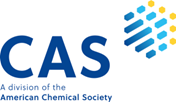Effects of Maternal Omega-3 Supplementation on Systemic Inflammation and Early Infant Neurodevelopment: A Prospective Comparative Study in Pakistan
Omega-3 and Infant Neurodevelopment
DOI:
https://doi.org/10.69750/dmls.02.03.0112Keywords:
DHA, EPA, pregnancy, inflammation, neurodevelopment, cognition, Omega-3 fatty acidsAbstract
Background: Long-chain omega-3 polyunsaturated fatty acids (PUFAs), notably docosahexaenoic acid (DHA) and eicosapentaenoic acid (EPA), support fetal neurogenesis and attenuate maternal inflammation. In South Asia, dietary omega-3 intake is low and pregnancy-related data are scarce.
Objectives: To evaluate the impact of maternal omega-3 supplementation on third-trimester inflammatory biomarkers, neonatal cranial ultrasound measures, and 12-month cognitive outcomes.
Methods: In this prospective comparative study, 40 women at 20–22 weeks’ gestation were enrolled at tertiary hospitals in Pakistan (September 2023–December 2024). Participants self-selected into two groups: supplemented (n = 20; ≥ 500 mg DHA + 120 mg EPA daily from enrollment until delivery) and control (n = 20; no supplementation). At 32–34 weeks, fasting blood samples were analyzed for interleukin-6 (IL-6), tumor necrosis factor-α (TNF-α), and C-reactive protein (CRP) via ELISA. Within 48 hours of birth, cranial ultrasound assessed head circumference, biparietal diameter, and lateral-ventricle width. At 12 months, cognitive performance was measured using the Bayley Scales of Infant Development, Third Edition (BSID-III). Statistical analyses included independent-samples t-tests, Mann–Whitney U tests, chi-square or Fisher’s exact tests, and Pearson correlation; significance was set at p < 0.05.
Results: Supplemented women exhibited lower IL-6 (3.8 ± 1.1 vs. 5.4 ± 1.3 pg/mL; p = 0.001) and CRP (2.1 ± 0.6 vs. 3.6 ± 1.0 mg/L; p = 0.0002). Their infants had larger head circumferences (34.8 ± 1.1 vs. 33.7 ± 1.3 cm; p = 0.004) and greater biparietal diameters (92.4 ± 2.6 vs. 89.5 ± 2.9 mm; p = 0.001). At 12 months, cognitive composite scores were higher in the supplemented group (109.2 ± 7.6 vs. 101.7 ± 8.4; p = 0.002). Maternal CRP inversely correlated with cognitive scores (r = –0.48; p = 0.004).
Conclusions: Maternal omega-3 supplementation during pregnancy significantly reduces systemic inflammation and enhances early neurodevelopmental outcomes. Routine prenatal omega-3 supplementation is recommended, particularly in low-intake populations.
Downloads
References
Larqué E, Gil-Sánchez A, Prieto-Sánchez MT, Koletzko B. Omega 3 fatty acids, gestation and pregnancy outcomes. British Journal of Nutrition. 2012;107(S2):S77-S84.doi: 10.1017/S0007114512001481
Labrousse VF, Leyrolle Q, Amadieu C, Aubert A, Sere A, Coutureau E, et al. Dietary omega-3 deficiency exacerbates inflammation and reveals spatial memory deficits in mice exposed to lipopolysaccharide during gestation. Brain, Behavior, and Immunity. 2018;73:427-40.doi: https://doi.org/10.1016/j.bbi.2018.06.004
Nevins JEH, Donovan SM, Snetselaar L, Dewey KG, Novotny R, Stang J, et al. Omega-3 Fatty Acid Dietary Supplements Consumed During Pregnancy and Lactation and Child Neurodevelopment: A Systematic Review. The Journal of Nutrition. 2021;151(11):3483-94.doi: https://doi.org/10.1093/jn/nxab238
Devarshi PP, Grant RW, Ikonte CJ, Hazels Mitmesser S. Maternal Omega-3 Nutrition, Placental Transfer and Fetal Brain Development in Gestational Diabetes and Preeclampsia. Nutrients [Internet]. 2019; 11(5).doi: 10.3390/nu11051107
Chowdhury MH, Susmita G, Ruhul KM, Al MMA, and Islam MS. Effect of supplementary omega-3 fatty acids on pregnant women with complications and pregnancy outcomes: review from literature. The Journal of Maternal-Fetal & Neonatal Medicine. 2022;35(13):2564-80.doi: 10.1080/14767058.2020.1786522
Klemens CM, Berman DR, Mozurkewich EL. The effect of perinatal omega-3 fatty acid supplementation on inflammatory markers and allergic diseases: a systematic review. BJOG: An International Journal of Obstetrics & Gynaecology. 2011;118(8):916-25.doi: https://doi.org/10.1111/j.1471-0528.2010.02846.x
Li J, Yin H, Bibus DM, Byelashov OA. The role of Omega-3 docosapentaenoic acid in pregnancy and early development. European Journal of Lipid Science and Technology. 2016;118(11):1692-701.doi: https://doi.org/10.1002/ejlt.201600076
Tahaei H, Gignac F, Pinar A, Fernandez-Barrés S, Romaguera D, Vioque J, et al. Omega-3 Fatty Acid Intake during Pregnancy and Child Neuropsychological Development: A Multi-Centre Population-Based Birth Cohort Study in Spain. Nutrients [Internet]. 2022; 14(3).doi: 10.3390/nu14030518
Sun J, Zhang W. Supplementation with dietary omega-3 PUFA mitigates fetal brain inflammation and mitochondrial damage caused by high doses of sodium nitrite in maternal rats. PLOS ONE. 2022;17(3):e0266084.doi: 10.1371/journal.pone.0266084
Basak S, Mallick R, Duttaroy AK. Maternal Docosahexaenoic Acid Status during Pregnancy and Its Impact on Infant Neurodevelopment. Nutrients [Internet]. 2020; 12(12).doi: 10.3390/nu12123615
Leyrolle Q, Decoeur F, Briere G, Amadieu C, Quadros ARAA, Voytyuk I, et al. Maternal dietary omega-3 deficiency worsens the deleterious effects of prenatal inflammation on the gut-brain axis in the offspring across lifetime. Neuropsychopharmacology. 2021;46(3):579-602.doi: 10.1038/s41386-020-00793-7
Gustafsson HC, Holton KF, Anderson AN, Nousen EK, Sullivan CA, Loftis JM, et al. Increased Maternal Prenatal Adiposity, Inflammation, and Lower Omega-3 Fatty Acid Levels Influence Child Negative Affect. Frontiers in Neuroscience. 2019;Volume 13 - 2019.doi: 10.3389/fnins.2019.01035
Haghiac M, Yang X-h, Presley L, Smith S, Dettelback S, Minium J, et al. Dietary Omega-3 Fatty Acid Supplementation Reduces Inflammation in Obese Pregnant Women: A Randomized Double-Blind Controlled Clinical Trial. PLOS ONE. 2015;10(9):e0137309.doi: 10.1371/journal.pone.0137309
Delattre AM, Carabelli B, Mori MA, Kempe PG, Rizzo de Souza LE, Zanata SM, et al. Maternal Omega-3 Supplement Improves Dopaminergic System in Pre- and Postnatal Inflammation-Induced Neurotoxicity in Parkinson’s Disease Model. Molecular Neurobiology. 2017;54(3):2090-106.doi: 10.1007/s12035-016-9803-8
Rees G, Brough L, Orsatti GM, Lodge A, Walker S. Do Micronutrient and Omega-3 Fatty Acid Supplements Affect Human Maternal Immunity during Pregnancy? A Scoping Review. Nutrients [Internet]. 2022; 14(2).doi: 10.3390/nu14020367
Sley EG, Rosen EM, van ‘t Erve TJ, Sathyanarayana S, Barrett ES, Nguyen RHN, et al. Omega-3 fatty acid supplement use and oxidative stress levels in pregnancy. PLOS ONE. 2020;15(10):e0240244.doi: 10.1371/journal.pone.0240244
Shahabi B, Hernández-Martínez C, Voltas N, Canals J, Arija V. The Maternal Omega-3 Long-Chain Polyunsaturated Fatty Acid Concentration in Early Pregnancy and Infant Neurodevelopment: The ECLIPSES Study. Nutrients [Internet]. 2024; 16(5).doi: 10.3390/nu16050687
Marx W, Thomson S, O'Hely M, Symeonides C, Collier F, Tang MLK, et al. Maternal inflammatory and omega-3 fatty acid pathways mediate the association between socioeconomic disadvantage and childhood cognition. Brain, Behavior, and Immunity. 2022;100:211-8.doi: https://doi.org/10.1016/j.bbi.2021.12.002
Firouzabadi FD, Shab-Bidar S, Jayedi A. The effects of omega-3 polyunsaturated fatty acids supplementation in pregnancy, lactation, and infancy: An umbrella review of meta-analyses of randomized trials. Pharmacological Research. 2022;177:106100.doi: https://doi.org/10.1016/j.phrs.2022.106100
Saccone G, Irene S, and Berghella V. Omega-3 long-chain polyunsaturated fatty acids and fish oil supplementation during pregnancy: which evidence? The Journal of Maternal-Fetal & Neonatal Medicine. 2016;29(15):2389-97.doi: 10.3109/14767058.2015.1086742






















